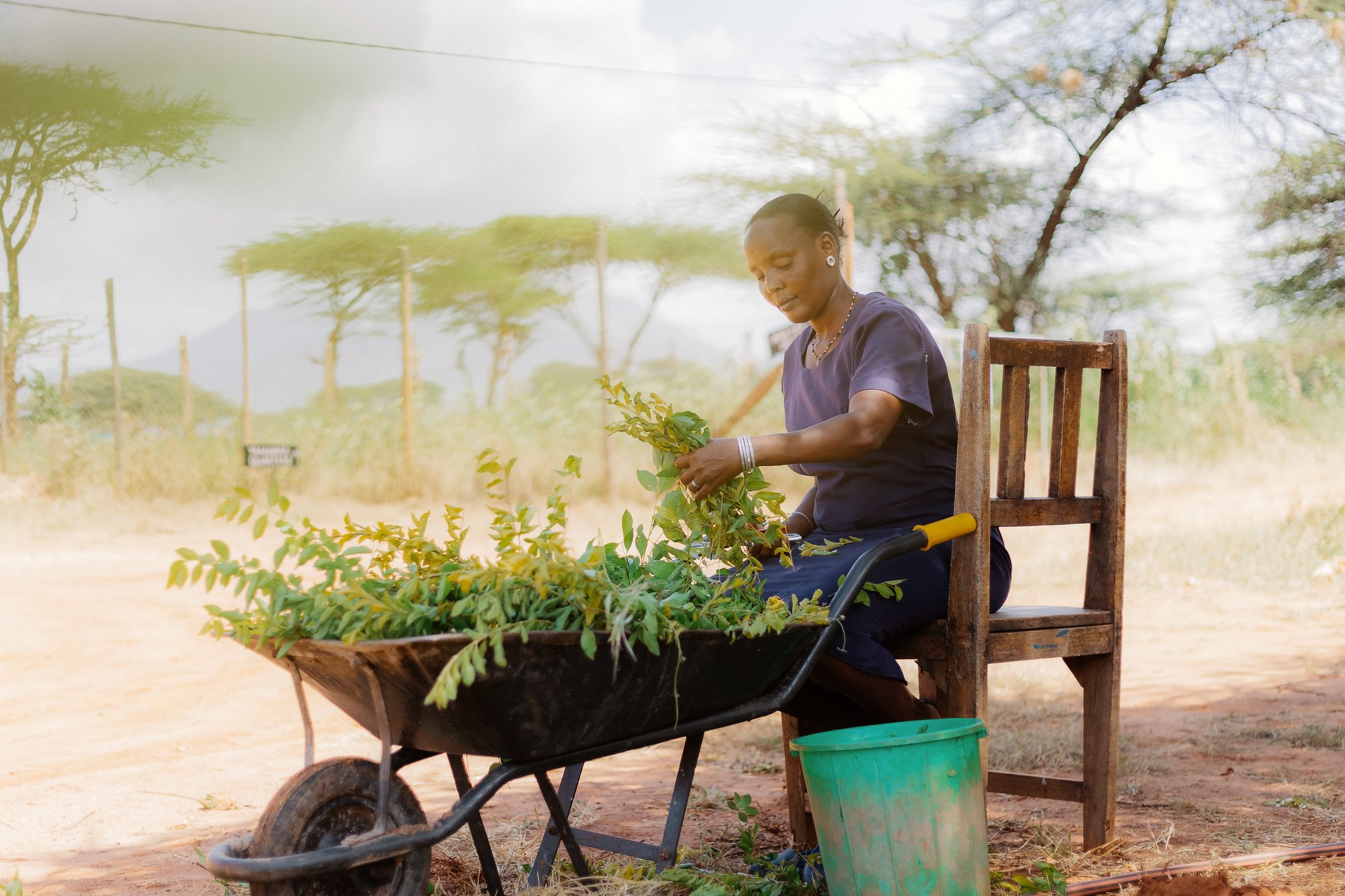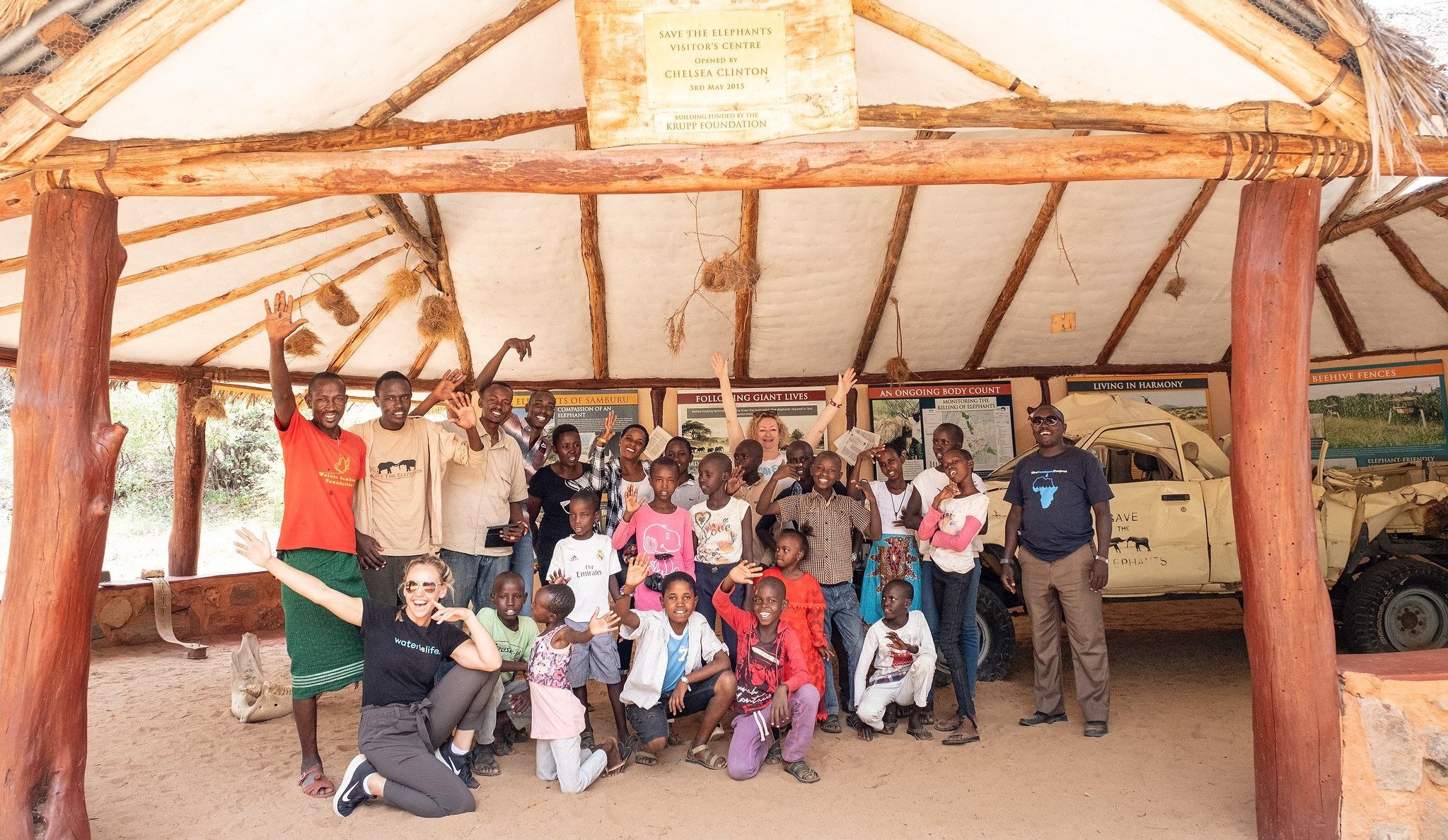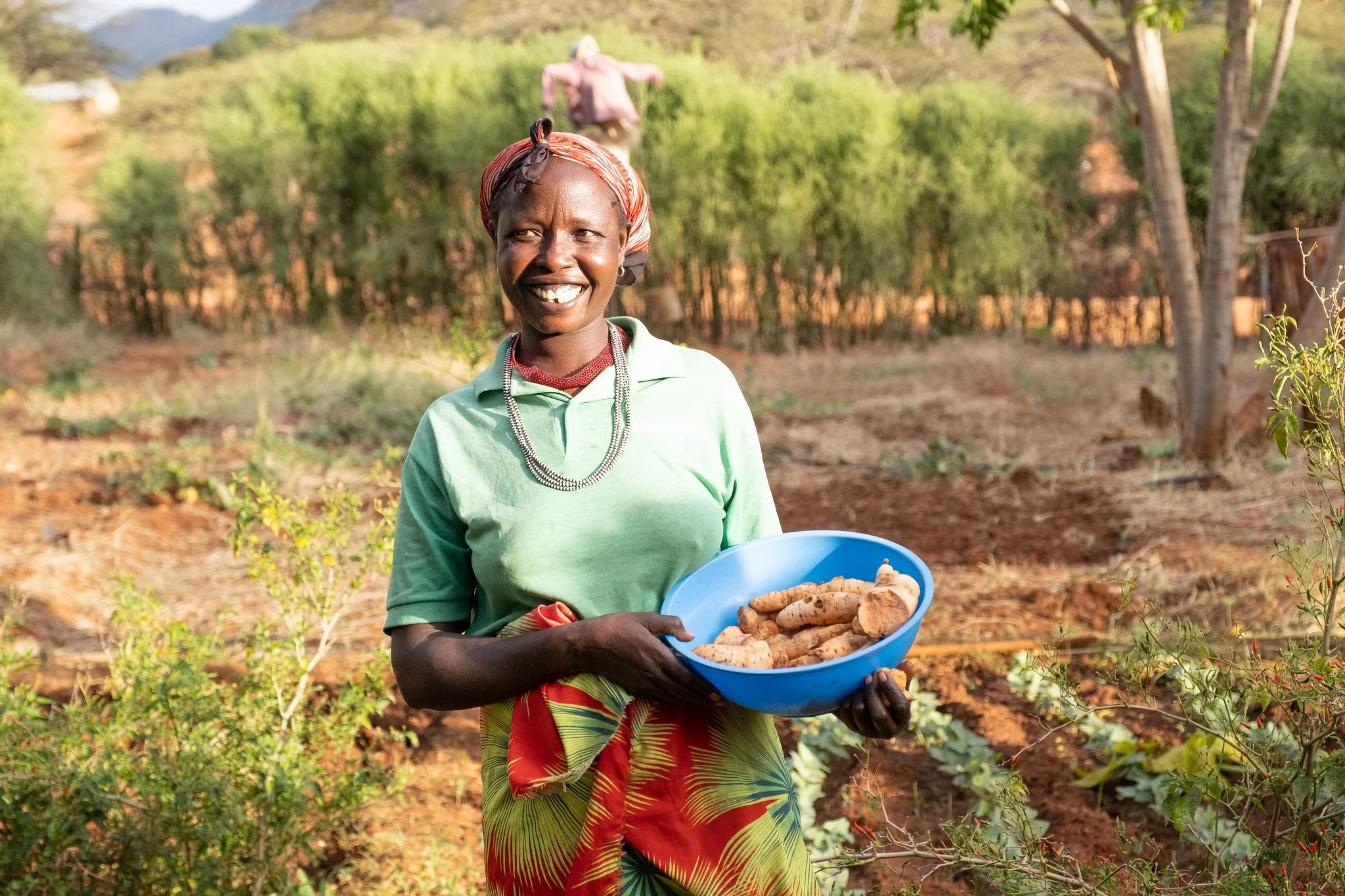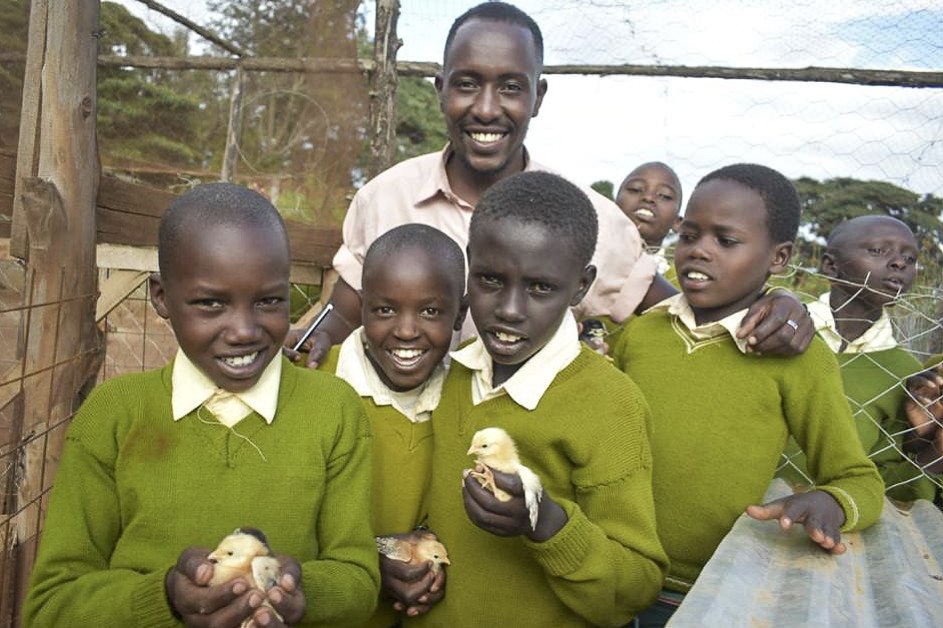
SEEING GREEN
With water, agricultural initiatives are now a possibility for this traditionally pastoralist community. From small seedling grown in flour sacks, to thriving community gardens, we have seen agricultural initiatives not just take root, but blossom into a world of possibility. One of the most successful community led initiatives is Milimani Farm in Samburu East's Wamba Division. With funding from the M. Night Shyamalan Foundation, in 2010 we expanded our borehole in Milimani by installing a submersible pump and generator to form a drip irrigation system. The project not only increased collective community income, but also improved food security and dietary diversity.
Inspired by the success of Milimani, in 2017, The Samburu Project collaborated with Give A Child Life Kenya (GACLK) to pilot a program introducing door-step gardens in 25 more well communities. Despite some initial struggles with weak seedlings, the program thrived and many gardeners were eating their own vegetables only three weeks after the initial plantings. A few of these gardeners were so inspired, they decided to turn their personal gardens into a business. One such gardener was Mary Lenkupae. Click the video below to hear her story.
SCHOOL GARDENS
With access to clean water, many of our partner schools have started to plant small gardens to teach students about agriculture as well as provide them with much needed nutrition. At Sere Olipi Primary School, where TSP installed a borehole in 2011, the student Environmental Club tends the thriving garden that produces corn, kale, carrots, potatoes, and other vegetables to feed the 500 students. Recently, a second garden was planted to utilize the run-off from the hand-washing station.
Inspired by the success at Sere Olipi Primary School, in 2022 we partnered with Tipito Girls Secondary School to launch a garden for the 75 students who live on campus. Filled with kale, zucchini, squash, watermelon, and more, the garden provides nutrient rich foods to students and staff alike, leading to improved health, and learning.
Most recently, for last years Giving Tuesday campaign, we mobilized our global community of supporters to raise over $20,000 to supply partner school with gardens, further growing the impact of clean water.
COMMUNITY CENTERS
In addition to facilitating programs for well communities, The Samburu Project partners with local institutions to provide resources and support to underserved populations in Samburu. In 2016, we worked with EOD Vets to launch a partnership with Mama Wachira’s Children’s Home, an orphanage in Archers Post. We constructed a new dormitory that provides shelter and beds for the 18 children there. In 2019, with the support of Global Playground, we built on this support by facilitating a field trip for the kids to the Samburu National Reserve. The children were introduced to scores of wildlife from giraffes and elephants, to lions, leopards, zebras and more. They visited the headquarters of Save The Elephants to learn about conservation, and enjoyed a hearty lunch along the Ewaso River before we dropped them off with a delivery of books from the Center for Early Education in West Hollywood, CA.
More recently, in 2023, we launched a partnership with Haruma Home, a center for disabled children in Wamba. We funded the drilling of a well for the center, including solar to bring the water directly to the campus and as well as to a kiosk to serve the surrounding community. We also funded food and hygiene supplies for the 40 children who call Haruma home. Supporting these community centers, even in small ways, allows them to better serve the people of Samburu where we cannot.

THE CHICKEN + THE EGG
The Samburu Project first met Chris Saidimu in 2011 while drilling a well in his village of Upper Margwe. Rudi Dundas, a photographer there on assignment from Blue Planet Network, was particularly moved by Chris’ dedication to his community. After learning that Chris had lost both of his parents to AIDS and would soon have to drop out of high school, she decided to intervene. Over the next six years, Rudi worked with The Samburu Project team to sponsor not just Chris’ Secondary School education, but his tuition at Kenyatta College in Nairobi where he went on to study education.
In 2017, Chris graduated from Kenyatta, and returned to his community and started a job as a teacher at Simotwo Primary School. In 2018 he had an idea to start a chicken farm to help pay the school fees for indigent children, and in 2019 he built the first chicken house. Over the next two years, Chris faced were a series of highs and lows, from combating chicken disease to perfecting the right feed combination and incubation time, but at each bump he persevered. In August of 2020, Chris sold his first tray of eggs for $3. Today, there are over 1,400 chickens and the egg business is growing. Twenty students from the Simotwo school tend to the chickens and their coop. They currently sell 4-5 trays of eggs a day, which not only pays for the farm expenses, but school fees, books, and clothes for needy children as well. Chris’ story reminds us all that with a little water, and access to education, sustainable community driven growth is possible.
GROWING TOGETHER
What sets The Samburu Project apart from other water organizations is that our central focus is not water, but the people and communities of Samburu, Kenya. We have been fortunate to work with hundreds of individuals, families, and foundations to provide clean water to communities in need; but, more importantly, we have worked hand in hand with the people of Samburu. From the moment a community applies to us for water relief, all initiatives are community-led making them more sustainable, and supported by local partners who make sure the water will continue to flow, and communities will continue to grow, for generations to come.










